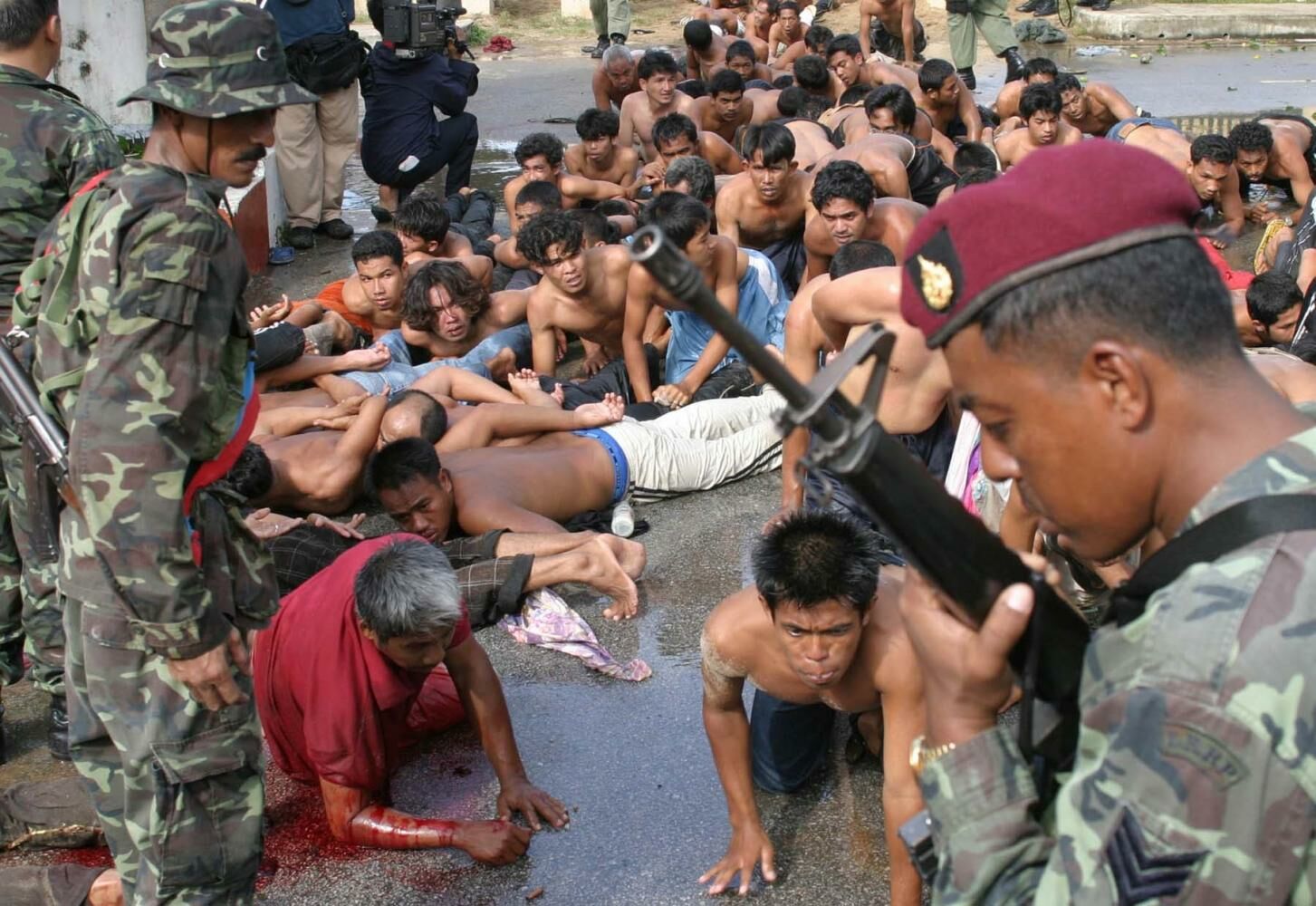Tak Bai tragedy: Thai officials to face music over deadly crackdown

The Government of Thailand is set to prosecute eight former security personnel for their alleged roles in the notorious Tak Bai crackdown nearly 20 years ago, where 78 protesters met a grim fate, suffocating or being crushed in overloaded army trucks, according to the Office of the Attorney General (OAG).
Among those facing serious charges are six soldiers and two civilians, all accused of premeditated murder with foreseeable consequences. OAG spokesperson Prayut Phetcharakhun stressed that while there was no direct intent to kill, the decision to cram detainees into overcrowded trucks was dangerously negligent.
“These suspects ought to have known that their actions would lead to the tragic deaths of 78 individuals under their watch.”
Attorney General Amnat Jedcharoenruk has ordered police to bring the accused to court immediately, with the statute of limitations for these charges expiring tomorrow.
In a parallel legal battle, the Criminal Court in Narathiwat accepted a complaint from the victims’ families against various security personnel. Following a protracted struggle, seven defendants now face charges of murder and unlawful detention connected to the disastrous handling of the protest.
These defendants, due to appear on September 12 for witness questioning and evidence examination, shockingly failed to attend, prompting the court to issue arrest warrants for six of them.
Parliamentary immunity
The seventh accused, former Army Region 4 commander Pisal Wattanawongkiri, currently dodges arrest thanks to parliamentary immunity as a Pheu Thai Party list-MP, with a summons now issued for his appearance.
Those named in this second case are Chaloemchai Wirulpetch, Sub. Lt. Nathawut Lueamsai, Wisanu Lertsongkhram, Lt. JG. Wisanukorn Chaisarn, Piti Yankaeo, CPO3 Pitak Srisuwan, Lt. Col. Prasert Matmil, and Lt. Rithirong Promrit.
The roots of the Tak Bai tragedy trace back to October 19, 2004, when local police in Narathiwat arrested six village defence volunteers, accusing them of colluding with insurgents by surrendering their government-issued firearms under false pretences of being robbed.
Tensions exploded on October 25, 2004, when hundreds of demonstrators rallied outside Tak Bai Police Station, demanding the release of the detainees. Lt. Gen.
Pisal, then commanding the 4th Army in the South, ordered the crowd to disperse by 1pm. The ensuing chaos left seven protesters dead from gunfire. The remaining demonstrators were subdued and readied for transport to an army camp.
The logistics nightmare that followed involved Gen. Chaloemchai, then commander of the 5th Infantry Division, mobilising 25 military trucks to haul around 1,000 detainees, with Lt. Col. Prasert overseeing the convoy.
Gross negligence
The other six suspects served as drivers. Prayut underscored the suspects’ gross negligence.
“With just 25 trucks for nearly 1,000 detainees, they should have foreseen the deadly risk of such overcrowding.”
The trucks were destined for Ingkhayutthaborihan military camp in Pattani’s Nong Chik district but tragically, 78 detainees did not survive the two-hour journey.
Though then-Prime Minister Thaksin Shinawatra apologised for the incident, he did not accept responsibility. Police initially alleged that some protesters were armed. Until now, no one has been held accountable for the deaths.
The brutal crackdown, which sparked global outrage, unfolded under martial law and remains one of the most lethal episodes in an insurgency that reignited in 2004. Since then, the conflict has claimed over 7,600 lives across the predominantly Muslim provinces of Narathiwat, Pattani, and Yala.
Latest Thailand News
Follow The Thaiger on Google News:


























